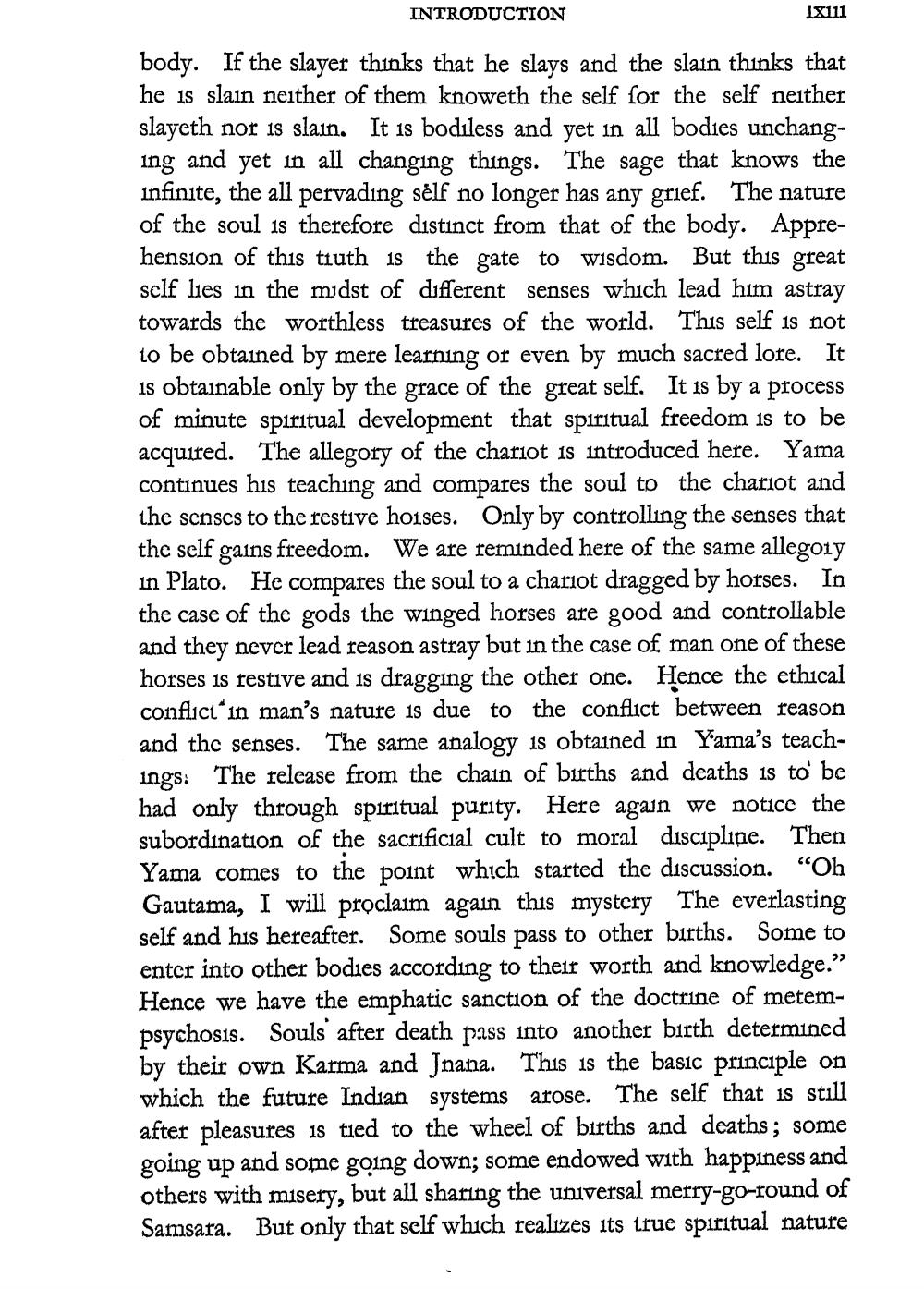________________
INTRODUCTION
1x111 body. If the slayer thinks that he slays and the slain thinks that he is slain neither of them knoweth the self for the self neither slayeth nor is slain. It is bodiless and yet in all bodies unchanging and yet in all changing things. The sage that knows the infinite, the all pervading self no longer has any grief. The nature of the soul is therefore distinct from that of the body. Apprehension of this truth is the gate to wisdom. But this great self lies in the midst of different senses which lead him astray towards the worthless treasures of the world. This self is not to be obtained by mere learning or even by much sacred lore. It is obtainable only by the grace of the great self. It is by a process of minute spiritual development that spiritual freedom is to be acquired. The allegory of the chariot is introduced here. Yama continues his teaching and compares the soul to the chariot and the senses to the restive houses. Only by controlling the senses that the self gains freedom. We are reminded here of the same allegoiy in Plato. He compares the soul to a chariot dragged by horses. In the case of the gods the winged horses are good and controllable and they never lead reason astray but in the case of man one of these horses is restive and is dragging the other one. Hence the ethical conflict' in man's nature is due to the conflict between reason and thc senses. The same analogy is obtained in Yama's teachings. The release from the chain of births and deaths is to be had only through spiritual purity. Here again we notice the subordination of the sacrificial cult to moral disciplipe. Then Yama comes to the point which started the discussion. “Oh Gautama, I will proclaim again this mystery The everlasting self and his hereafter. Some souls pass to other births. Some to enter into other bodies according to their worth and knowledge." Hence we have the emphatic sanction of the doctrine of metempsychosis. Souls' after death pass into another birth determined by their own Karma and Jnana. This is the basic principle on which the future Indian systems arose. The self that is still after pleasures is tied to the wheel of births and deaths; some going up and some going down; some endowed with happiness and others with misery, but all sharing the universal merry-go-round of Samsara. But only that self which realizes its true spiritual nature




